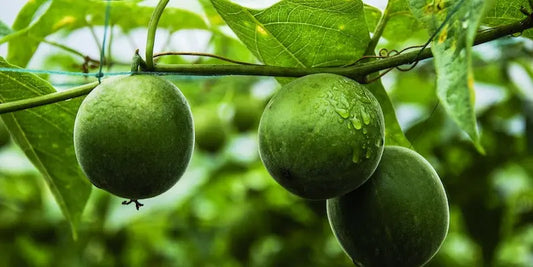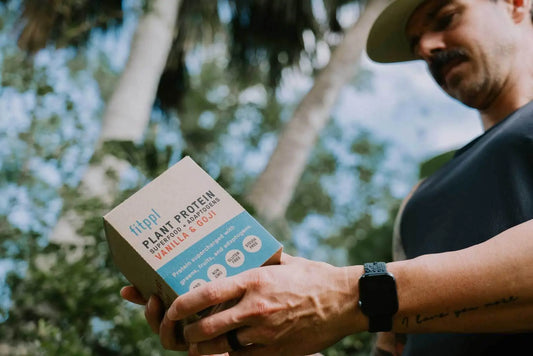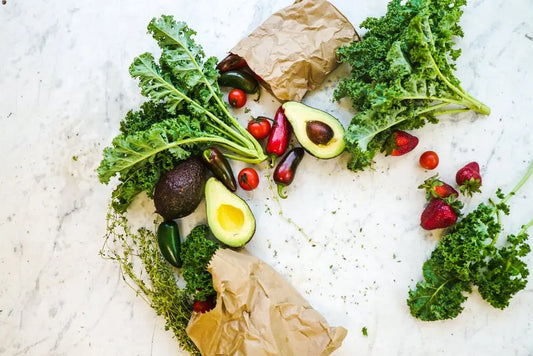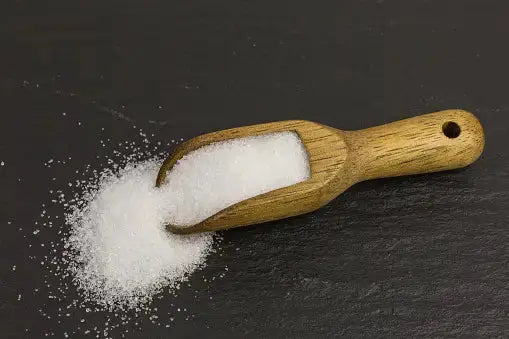Top 9 Most Sustainable Protein Sources

Eating healthy is hard enough, let alone trying to minimize the impact your diet makes on the planet. It's now no secret how bad animal protein is for the environment. After pursuing the shelves of your local food store you may find yourself tossing your arms up and wondering what CAN you eat without harming the planet. The good news is, there’s plenty! With so many eco-friendly, meat-free protein sources out there you don’t have to starve just for the sake of cutting carbon emissions. Keep in mind, that even with plant protein sources, it’s always better to buy as local as possible. Not only is local produce much fresher, it also hasn’t been hauled across the country or air-freighted in to you. Shopping at farmer’s markets and checking for “local” stickers on the food from your grocery store are great ways to ensure you are shrinking your carbon footprint. Also, a little common sense goes a long way. If you live in New York City and you’re buying a pineapple in January, chances are that fruit has traveled a long way just so you can enjoy it. Now that you know what to look for, the following are 9 of most eco-friendly protein sources.
1. GARDEN PEAS
Opting for garden peas over soybean plants is an effective way to eat healthy while helping the planet, too. Because peas naturally fix nitrogen into the soil, means the need for synthetic fertilizer is eliminated. In addition it enriches the soil so after harvest the soil is ready for more seeds. Since peas grow in cool conditions, water is reduced. Aside from their high protein and fiber content, peas are a great source of a number of other nutrients. You’ll want to opt for non-GMO verified pea protein so fitppl plant proteins are your best bet.
2. QUINOA
This complete protein is a pseudo-grain and is extremely easy to cook. Another similar complete protein is buckwheat and it can always be substituted for quinoa.
3. RICE
Most of think of rice as a food rich in carbohydrates. However, rice also contains a considerable amount of vegan and gluten-free protein. High quality rice protein (like ours) is made by treating brown rice with enzymes that cause the carbohydrates and protein to separate.The protein can be isolated, resulting in a high quality plant-based protein powder. To ensure you’re getting the best source of organic rice protein stick with fitppl plant proteins.
4. LENTILS
Although they are not a complete protein until combined with a grain such as rice, lentils are a great source of healthy carbs, filling fiber, and amino acids. The Environmental Working Group, states that lentils are the most climate friendly protein. The overall carbon emissions involved in producing lentils along with the post-production emissions are only 0.9kg of CO2.
5. HEMP SEEDS
Hemp contains approximately 65% protein and is hypoallergenic. They are easily absorbed, digested, and utilized by the body. Stick to organic like you find in fitppl plant proteins.
6. SPIRULINA
This superfood is over60% protein in its natural state, higher than virtually any other unprocessed food. Even better, it is easy for the body to break down. Be aware that this cannot be used as a main source of protein since it would take way too much to make up for the body’s protein demands. Find unique protein powder like fitppl which incorporate this powerhouse ingredient.
7. CHIA SEEDS
Also a complete protein, chia seeds are considered a superfood because they are easy to digest and are a great source of calcium, phosphorous, manganese, and dietary fiber. Chia seed pudding is a great way to add a hefty dose of protein first thing in the morning.
8. BEANS
Beans have forever been a go-to food for vegetarians everywhere. This protein source is a staple protein that can make a huge impact on reducing environmental destruction.
9. NUTS
This low-carbon protein source, is a clean protein. Keep in mind that peanut butter, though a great source of protein, actually does make an impact on the environment because of the processing. Nut butters in general tend to add to the carbon footprint.










